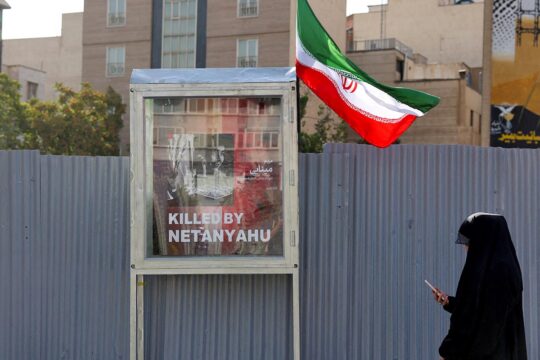Twenty-five years ago, on March 24, 1999 NATO launched 11 weeks of air strikes on Yugoslavia to force it to end its bloody crackdown on separatists in Kosovo.
It was the first time NATO had attacked a sovereign state in its 50-year history and remains a source of deep resentment both in Serbia, home of the former Yugoslav capital Belgrade, as well as in fellow Slavic ally Russia.
Here's what you need to know about the US-led campaign:
- Why did NATO bomb Serbia?
Europe was still reeling from the brutal conflicts that had engulfed the former Yugoslav republics of Bosnia and Croatia from 1991 to 1995 when Serbian leader Slobodan Milosevic sent troops into Kosovo, a Serbian province with an ethnic Albanian majority, to crush pro-independence guerrillas, in early 1998.
Milosevic portrayed the Kosovo Liberation Army (KLA) as a terrorist organisation bent on driving ethnic Serbs out of a province cherished by Serbs as a cradle of their Orthodox Christian faith.
His campaign against them left some 13,000 people dead, mostly ethnic Albanians, and drove hundreds of thousands of people from their homes, leading NATO to accuse him of ethnic cleansing.
After failed peace talks, NATO Secretary General Javier Solana announced on March 23, 1999 that the alliance had "no alternative... but to take military action".
- How did the world react? -
Serbia's allies Russia and China, both permanent members of the UN Security Council, strongly rejected the military intervention, which went ahead without the UN's authorisation.
"Morally, we are on higher ground right now than America," Russian President Boris Yeltsin said of the airstrikes.
In Serbia and fellow Yugoslav republic Montenegro, which was also targeted by the airstrikes, even those who were opposed to Milosevic saw NATO as the chief aggressor.
Across Latin America, Asia, Africa and the Middle East critics of European imperialism and American interventionism took a similar view, leading to mass anti-NATO demonstrations.
"Is NATO's work to prevent war or to fuel one?" asked India's prime minister Atal Bihari Vajpayee.
- What did NATO target? -
The strikes on the Serbian capital Belgrade, Kosovo's capital Pristina and other cities and towns began on the evening of March 24.
Over the 11-week "Allied Force" campaign, NATO carried out 38,000 sorties and 10,000 bombardments.
After running out of military and regime targets, NATO's focus shifted to infrastructure such as petroleum and power plants, roads and railways.
One of its most controversial strikes targeted Serbian state-run broadcaster RTS.
Sixteen employees were killed in that bombing, which NATO justified on the grounds that the broadcaster was part of Milosevic's propaganda machine.
- How did Milosevic react? -
NATO was hoping that a few days of strikes would bring Milosevic back to the negotiating table.
Instead, he stepped up his brutal campaign against Kosovo's Albanians, exacerbating the refugee crisis.
NATO blunders such as the bombing of the Chinese embassy in Belgrade due to a CIA mapping error that left three dead, and an attack on an Albanian refugee convoy that left scores dead, increased global opposition to the campaign.
- How did the war end? -
After 78 days of airstrikes, Milosevic suddenly capitulated.
On June 10, 1999, he ordered his forces to withdraw from Kosovo, which was effectively taken over by the international community.
The toll of the bombing campaign is disputed to this day. Serbian authorities say 2,500 civilians were killed. A report by Human Rights Watch in 2000 put the figure at around 500.
After the war, many Kosovo Serbs were pressured to either flee or sequester themselves in enclaves.
Milosevic was ousted in an uprising in 2000 and later sent to the Hague where he was put on trial for genocide, war crimes and crimes against humanity in the Balkans wars. He died in his cell in 2006, aged 64.
Kosovo declared independence in 2008, a move Serbia, China and Russia still refuse to recognise.
Montenegro, which became independent in 2006, joined NATO in 2017. Most Serbians remain bitterly opposed to the alliance.


